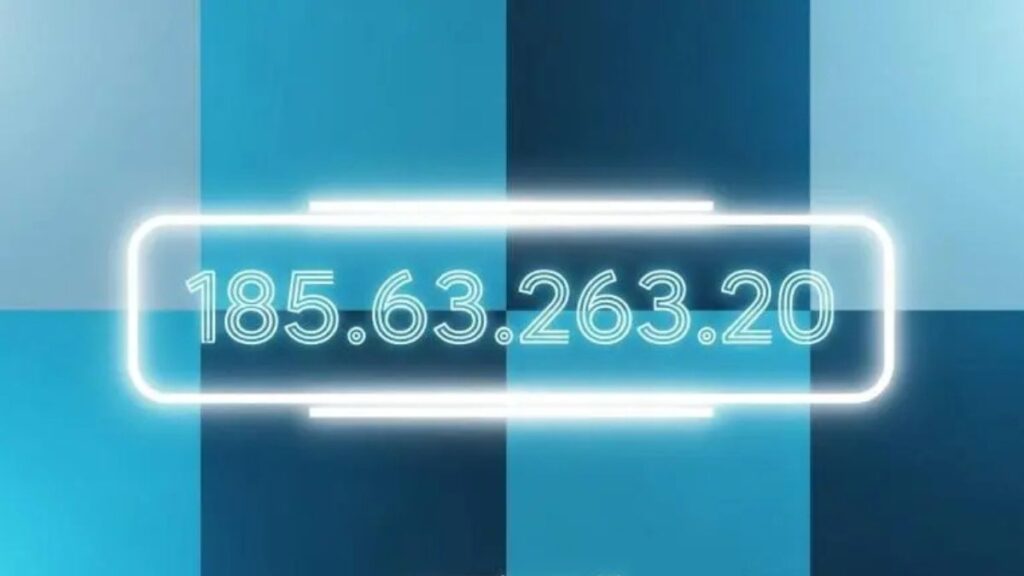Introduction to IP Addresses
In the vast expanse of the digital world, every device connected to the internet has a unique identifier—an IP address. These numerical labels serve as essential components for network communication, guiding data to its intended destination. Among these addresses lies 185.63.263.20, a sequence that may seem just like any other string of numbers but holds much more significance than meets the eye.
As our reliance on technology continues to grow, understanding specific IP addresses becomes crucial for cybersecurity professionals and everyday users alike. What does this particular address signify? How has it evolved over time? In this blog post, we’ll explore everything you need to know about 185.63.263.20 and its relevance in today’s interconnected landscape. Get ready for an insightful journey into the world of IPs!
What is the 185.63.263.20 IP Address?
The IP address 185.63.263.20 belongs to a unique set of numeric identifiers used in the digital world. It serves as a crucial point of reference for devices connecting to the internet.
This specific address is part of the IPv4 format, which consists of four numbers separated by dots. Each segment can range from 0 to 255, allowing for billions of possible combinations.
As an essential tool for network communication, it helps route traffic across various platforms and services. When you enter a URL or access online content, it’s this kind of address that directs requests efficiently.
Understanding such addresses enhances our grasp on how data travels globally. The significance extends beyond mere identification; it facilitates seamless interactions between users and servers worldwide.
The History of 185.63.263.20
The history of 185.63.263.20 is a fascinating journey through the evolution of digital connectivity. This IP address belongs to a particular range assigned by regional internet registries, reflecting the growth of online infrastructure.
Initially, as more devices connected to the internet, there was an increasing need for unique identifiers like this IP address. It emerged during a time when IPv4 addresses were becoming scarce due to rapid expansion in global internet usage.
Over the years, 185.63.263.20 has been associated with various organizations and networks across different regions. Its allocation reflects strategic decisions made by authorities managing internet resources.
As technology advanced, so did its applications—transforming from mere navigation tools into critical components for data transfer and security protocols on the web today.
Uses and Applications of 185.63.263.20
The IP address 185.63.263.20 serves various functions in the digital realm. It is primarily associated with web hosting and online services, providing a vital link between websites and users.
Companies often utilize this IP address for their servers, ensuring reliable access to their platforms. This application enhances user experience by reducing latency and improving load times.
Moreover, cybersecurity teams monitor IP addresses like 185.63.263.20 for potential threats or malicious activities. Identifying unusual traffic patterns can help protect networks from breaches.
Some organizations even use such specific addresses for geographic targeting in marketing campaigns, optimizing ad delivery based on regional metrics.
In the world of content distribution, this IP plays a role too; it helps deliver multimedia content efficiently across different regions without compromising quality or speed.
Concerns and Controversies Surrounding 185.63.263.20
The IP address 185.63.263.20 has sparked various concerns in the digital realm. Its association with questionable activities raises eyebrows among cybersecurity experts.
Some reports link this IP to spamming and phishing attempts, which can compromise users’ sensitive information. This notoriety creates a cloud of distrust surrounding any web traffic originating from it.
Privacy advocates also voice their worries about its potential misuse for tracking individuals without consent. The implications are serious, as more people become aware of how easily they can be monitored online.
Moreover, businesses frequently debate whether to block or allow access from such addresses, weighing security against customer service needs. These conversations reveal the ongoing struggle between maintaining safety and ensuring open communication across networks.
Thus, while 185.63.263.20 serves functional purposes within certain frameworks, the controversies attached make it a focal point for discussion on internet ethics and responsibility.
The Future of IP Addresses and the Role of 185.63.263
The future of IP addresses is evolving rapidly. As the internet expands, the demand for unique identifiers grows. IPv6 adoption is on the rise, addressing concerns over limited IPv4 availability.
In this landscape, 185.63.263.20 represents a transitional phase between legacy systems and modern needs. Its allocation reflects how organizations are adapting to technological advancements while ensuring connectivity.
With emerging technologies like IoT and smart devices, each connected entity requires an addressable point in cyberspace. The role of specific IPs—including 185.63.263—will be pivotal as we navigate these changes.
Security measures will also adapt alongside these developments, focusing on protecting users and data integrity in increasingly complex networks.
As digital interactions become more sophisticated, understanding individual IP addresses’ significance—including that of 185.63.263—will remain crucial for both businesses and consumers alike.
Conclusion
The digital landscape is constantly evolving, and so is the significance of IP addresses like 185.63.263.20. As we navigate a world increasingly reliant on connectivity, understanding these numerical identifiers becomes essential.
People often underestimate how much an IP address can reveal about online behavior, security risks, and even regional data access. The history behind 185.63.263.20 shows its roots in the larger framework of internet infrastructure and highlights its usage across various platforms.
While there are legitimate applications for this specific IP address, it’s important to recognize potential concerns surrounding privacy and misuse in today’s digital age.
As technology advances toward IPv6 adoption to accommodate more devices than ever before, the role of specific addresses will continue to shift along with user needs.
Staying informed about such key components helps users navigate their online experiences safely while fostering a greater understanding of what lies beneath our everyday interactions on the web. There’s much more ahead for IP addresses like 185.63.263.20 as they remain integral to how we connect digitally.





